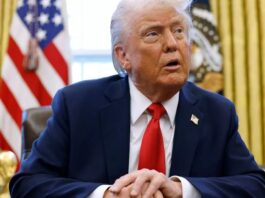Elon Musk and Vivek Ramaswamy, two prominent advisors in President-elect Donald Trump’s incoming administration, have made waves by proposing a dramatic overhaul of the federal workforce. In an explosive opinion piece published in The Wall Street Journal, the duo called for the end of remote work for federal employees, labeling it a “Covid-era privilege” that should be eliminated.
What’s at Stake?
If enacted, this policy could directly impact over 1.1 million federal civilian workers, including 228,000 in fully remote positions. Musk and Ramaswamy argue that mandating a return to in-office work would lead to “voluntary terminations” from those unwilling to comply, ultimately shrinking the federal workforce and saving taxpayer dollars.
“American taxpayers shouldn’t pay employees who refuse to show up,” the pair bluntly stated.
The Push Against Remote Work
While the Biden administration encouraged more in-person work in 2023, it allowed for some flexibility, citing operational costs and the need to recruit top talent. Musk and Ramaswamy’s proposed policy would eliminate that flexibility, requiring full-time in-office attendance for all eligible federal employees.
Musk has already implemented similar policies at Tesla and SpaceX, mandating a minimum of 40 hours on-site work per week. However, federal unions have criticized the tech mogul’s approach, accusing him of misunderstanding how the federal system operates.
DOGE: Musk and Ramaswamy’s Mission
The controversial plan is part of their role as co-heads of Trump’s new Department of Government Efficiency (DOGE), a proposed agency aimed at slashing government waste. Though currently advisory, the department’s recommendations could become official if Congress approves its creation.
Their policy suggestions go beyond remote work. They include “large-scale firings,” relocating federal agencies outside Washington, and cutting government regulations. Musk and Ramaswamy believe these measures align with recent Supreme Court rulings that would give Trump significant authority to enact such changes.
Union Backlash
Randy Erwin, president of the National Federation of Federal Employees, blasted the proposal as uninformed and unfair. “It’s clear Musk and Ramaswamy don’t understand how the federal workforce operates,” Erwin said, defending the hard work of federal employees against what he called “absurd claims about government waste.”
The Bigger Debate
As remote work continues to divide opinions in the private sector, Musk and Ramaswamy’s hardline stance raises questions about whether flexibility or tradition should shape the future of federal employment. Companies like Amazon have also pushed for a return to office, while others use remote work as a competitive edge in recruitment.
For federal employees, the stakes couldn’t be higher. This radical proposal could redefine the workplace for millions, marking a stark shift in how the government operates post-pandemic.
What’s Next?
Will Trump’s administration succeed in implementing these drastic changes? Only time will tell, but one thing is certain: Musk and Ramaswamy’s bold vision for the federal workforce is already sparking fierce debate.
Stay tuned as this story develops!












